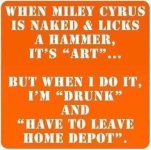ElectricBlue
Joined 10 Years Ago
- Joined
- May 10, 2014
- Posts
- 16,562
Reading that gets to be more a disappointment than anything else, if all the facts emerge with, as Simon notes, credible evidence.This part is true. Some people are very good at hiding who they are. But that doesn't preclude acting on information when we do know.
I have dozens of books by Neil Gaiman, I have stuff he's signed, I've watched/bought several of his shows and movies. I feel no guilt about that, because I didn't know what he was when I handed over my money. But now that I do know, I'm not going to keep putting money in his pocket.
[Edit - content redacted]
Last edited:
